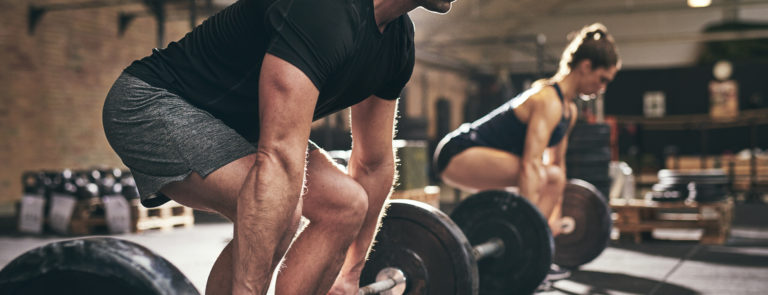20% off £30
How to bulk up fast

There are many different medical and personal reasons behind being underweight.
Some people, particularly (but not exclusively) men, are a healthy weight but would like to be less skinny, or to have more muscle.
If you would like to increase your body size, it is important to first be clear about what exactly your reasons are for doing this, along with fully understanding any underlying factors 1 already contributing to you being a size that you are not comfortable with.
The type of food you will need to eat and the exercises you will focus on will largely depend on what your motivations are and the sort of mass you are looking to gain (fat or muscle).
If you are already at a healthy weight and would like to mainly gain muscle, you can try the following exercise and diet strategies.
Exercise strategies for bulking up

This includes exercises such as squats, bench presses, and chin-ups.
A great goal is to aim to train each muscle group twice a week. Progressively increase the weights each week.4
Finally, while exercising, focus on time under tension, not just the size of the weight you are lifting.
This means holding the weights in position for longer.
This gives your body time to realise that it needs to build your muscle so you can adapt to your new lifestyle.
When it does this, it releases two hormones (a growth hormone and IGFL-1), which are associated with muscle growth and fat reduction.5
Weight gainer meal plans and diets for bulking up
Protein is key for building muscle, but so is a well-balanced diet with all the types of nutrients that your body needs for energy, sleep, organ functioning, and more. Protein is important for all types of body tissue.6
You can consume protein through foods such as fish, cheese, yoghurt, milk, chicken, and other sources.
You can also complement such a diet with protein powders in the form of shakes, bars, and capsules.
It is particularly beneficial to consume protein in the morning (because it is filling and sets you up well to be less likely to crave sugary snacks), as well as before and after exercising.
Protein can contribute to the growth and maintenance of muscle mass

The first, called a bulking phase involves a high-calorie and protein-rich diet. This stage can last months to years.
The second phase, the cutting phase, focuses on losing as much fat as possible through changes in diet and exercise. This too can last three to six months.8
Mass gainer tips
Building strength takes years, not weeks.9 The more experienced you are, the longer it will take. If you are starting out, you can hope to gain around three kilos a year, but people who have been working out for longer might gain half a kilo of muscle a year.10
Still, you can see some quick initial gains by trying these tips.
When working out, pick a weight that you can only barely manage. Compound moves will provide you with the necessary tension.11 These are exercises that involve multiple muscle groups.12 In addition, you can go back-to-back. This involves doing two exercises at once. For example, leg presses with jump squats, or press-ups with bench presses.13
By involving your whole body, you are maximising the blood uptake by your muscles.
It is also helpful to take active rests. This is where you walk around or do some mobility work for a few minutes between exercises.14
Last Updated: 27 October 2020
- https://www.nhs.uk/common-health-questions/food-and-diet/how-can-i-gain-weight-safely/
- https://www.healthline.com/nutrition/bodybuilding-meal-plan
- https://www.healthline.com/nutrition/bodybuilding-meal-plan
- https://www.coachmag.co.uk/workouts/4210/how-to-bulk-up-this-winter
- https://www.mensjournal.com/health-fitness/how-gain-muscle-just-week/
- https://www.nhs.uk/live-well/healthy-body/body-building-sports-supplements-facts/
- https://www.healthline.com/nutrition/foods/strawberries#vitamins-and-minerals
- https://www.healthline.com/nutrition/bodybuilding-meal-plan
- https://www.nhs.uk/live-well/healthy-body/body-building-sports-supplements-facts/
- https://www.coachmag.co.uk/workouts/4210/how-to-bulk-up-this-winter
- https://www.menshealth.com/uk/building-muscle/a750047/the-best-way-to-bulk-up/
- https://www.bodybuilding.com/content/powerful_workout_exercises.html
- https://www.menshealth.com/uk/building-muscle/a750047/the-best-way-to-bulk-up/
- https://www.menshealth.com/uk/building-muscle/a750047/the-best-way-to-bulk-up/















